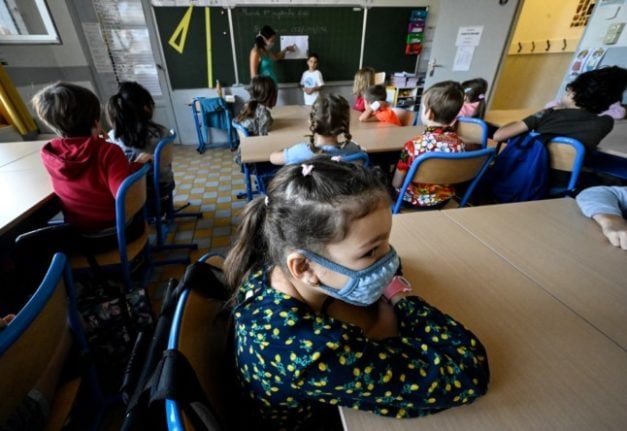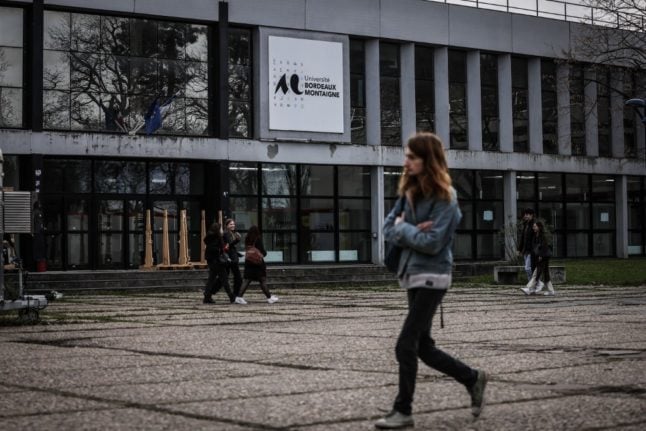The rule on wearing masks in the classroom had been listed in recent weeks in many areas that had low Covid rates, but now 39 départements will be added to the list of 22 départements already exceeding the alert threshold to trigger additional school health measures, taking the total to 61.
The rule will be imposed when schools return from the Toussaint holidays on Monday.
Cases have risen since October 10th, when just 17 départements were above the alert threshold of 50 new cases per 100,000 people.
Government spokesman Gabriel Attal, speaking after the weekly Council of Ministers meeting at the Elysée Palace, said that the stricter measures would be imposed in schools in certain départements where cases had risen above 50 per 100,000.
The affected parts of the country will be officially revealed when the latest figures are published on Thursday evening.
These two maps, from Covidtracker’s Guillaume Rozier, show where cases are above 50 per 100,000, and where levels may be a week from now.
Aujourd'hui, 43 départements ont un taux d'incidence inférieur au seuil d'alerte (50 cas/sem). À évolution constante, on en aurait plus que 29 dans une semaine. https://t.co/YMQ3pTtR4h pic.twitter.com/2LZv9rLalm
— GRZ (@GuillaumeRozier) November 3, 2021
“From next week … in the départements where the incidence rate has unfortunately stabilised above 50 per 100,000 inhabitants (…) the mask will again be made compulsory for children of schools concerned,” Attal said in his weekly press briefing.
“As we can alleviate measures of constraint, we will do it,” he added. “Obviously this principle is valid in both directions and as soon as the situation deteriorates, unfortunately, we must reactivate a certain number of measures,” he specified.
In total, 79 of France’s 101 départments had lowered restrictions in primary schools before the holidays in line with an improving health situation. Pupils in collège and lycée carried on wearing masks in the classroom.
For adults, the mask rules remain the same – masks are compulsory on all public transport and in any indoor public space which is not a health pass venue – this affects primarily shops, but masks remain compulsory in many workplaces.
Local authorities can also impose additional mask rules, last week authorities in Loire-Atlantique reimposed rules on mask-wearing outdoors in 68 communes.
Failure to abide by mask rules can net you a €135 fine.
Meanwhile, the number of people being hospitalised with Covid-19 is heading up again, Attal confirmed, but he said that France is experiencing a ‘rise’ in cases rather than a ‘surge’.
And he urged those eligible for a third ‘booster’ dose of vaccine to book an appointment. “Each booster dose is an additional protection against [Covid cases rising in] winter,” he said.



 Please whitelist us to continue reading.
Please whitelist us to continue reading.
Member comments